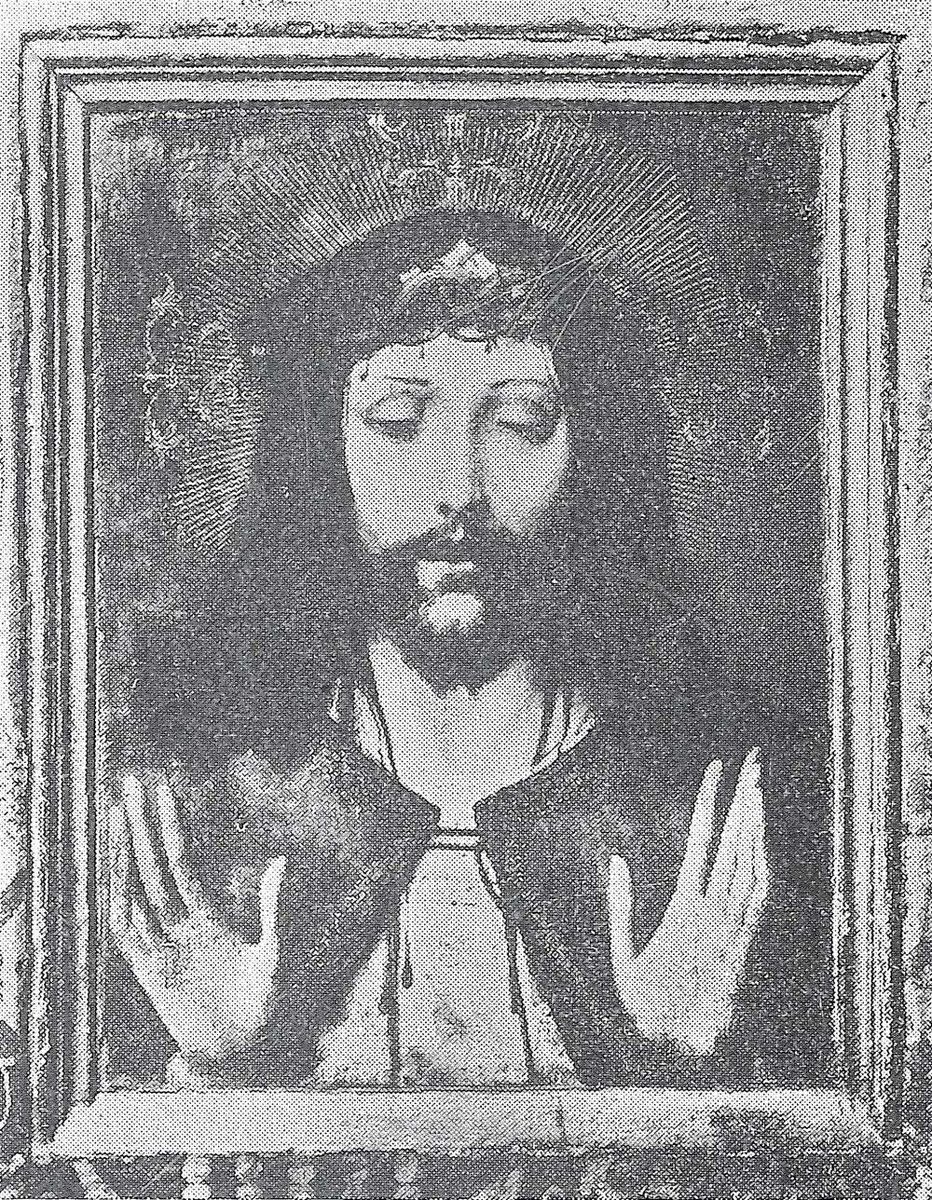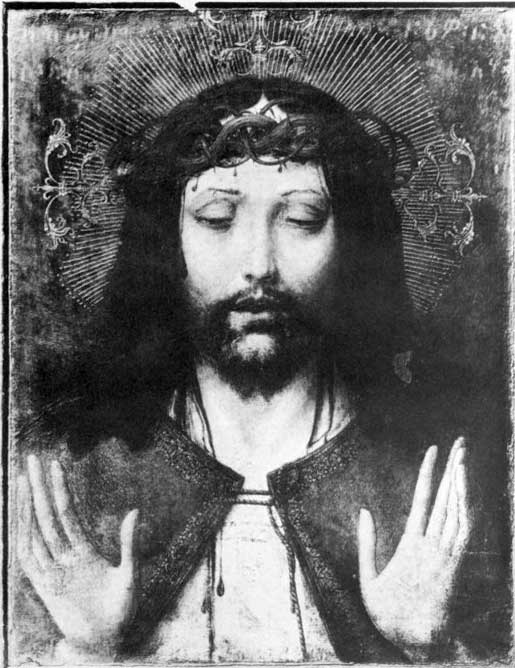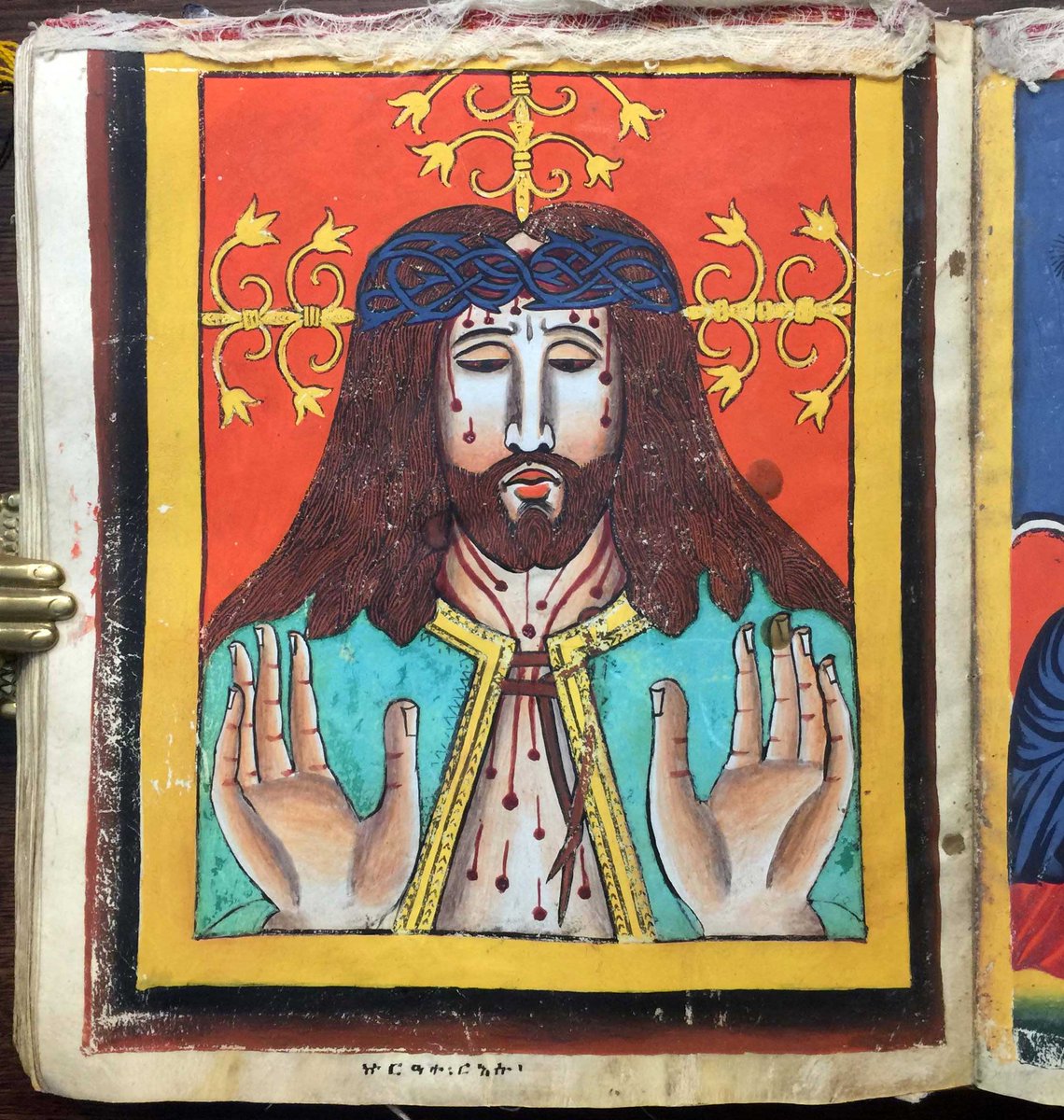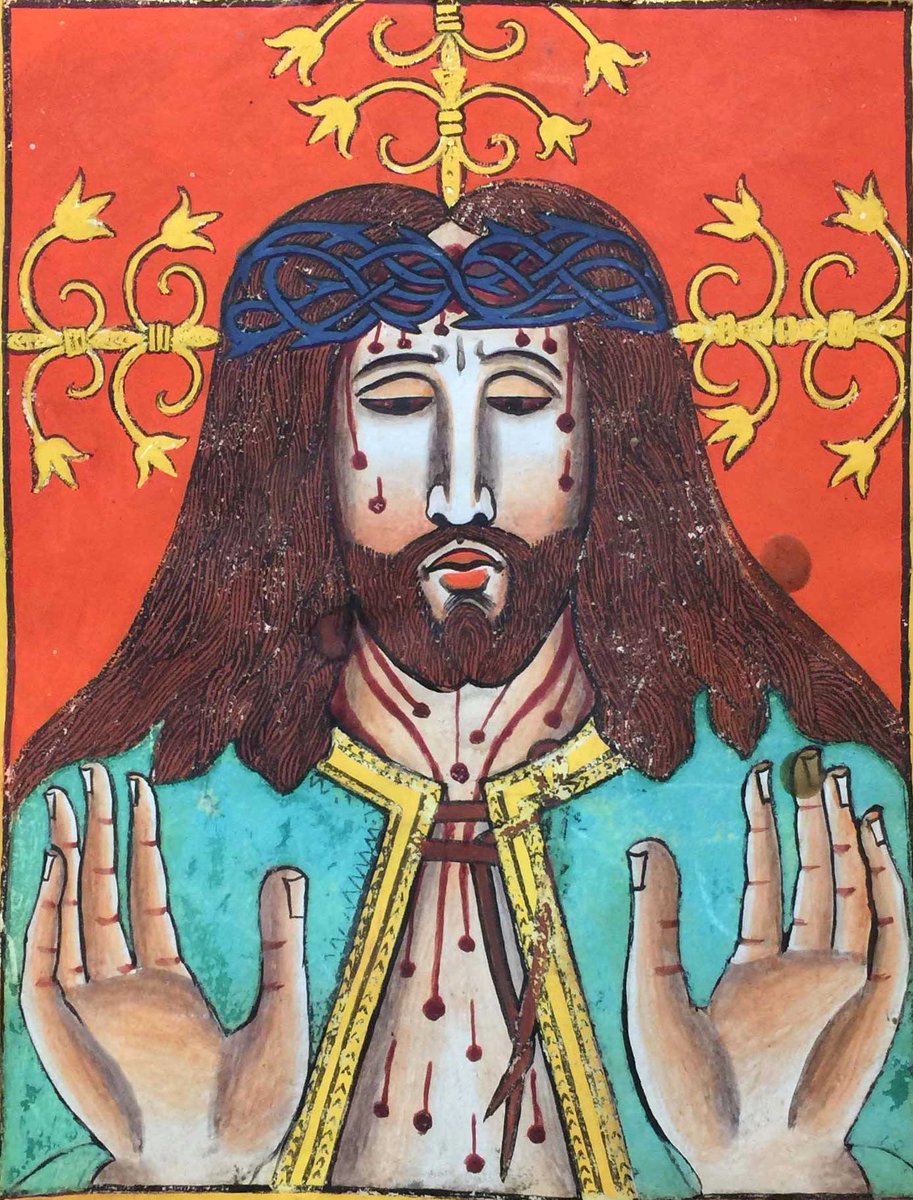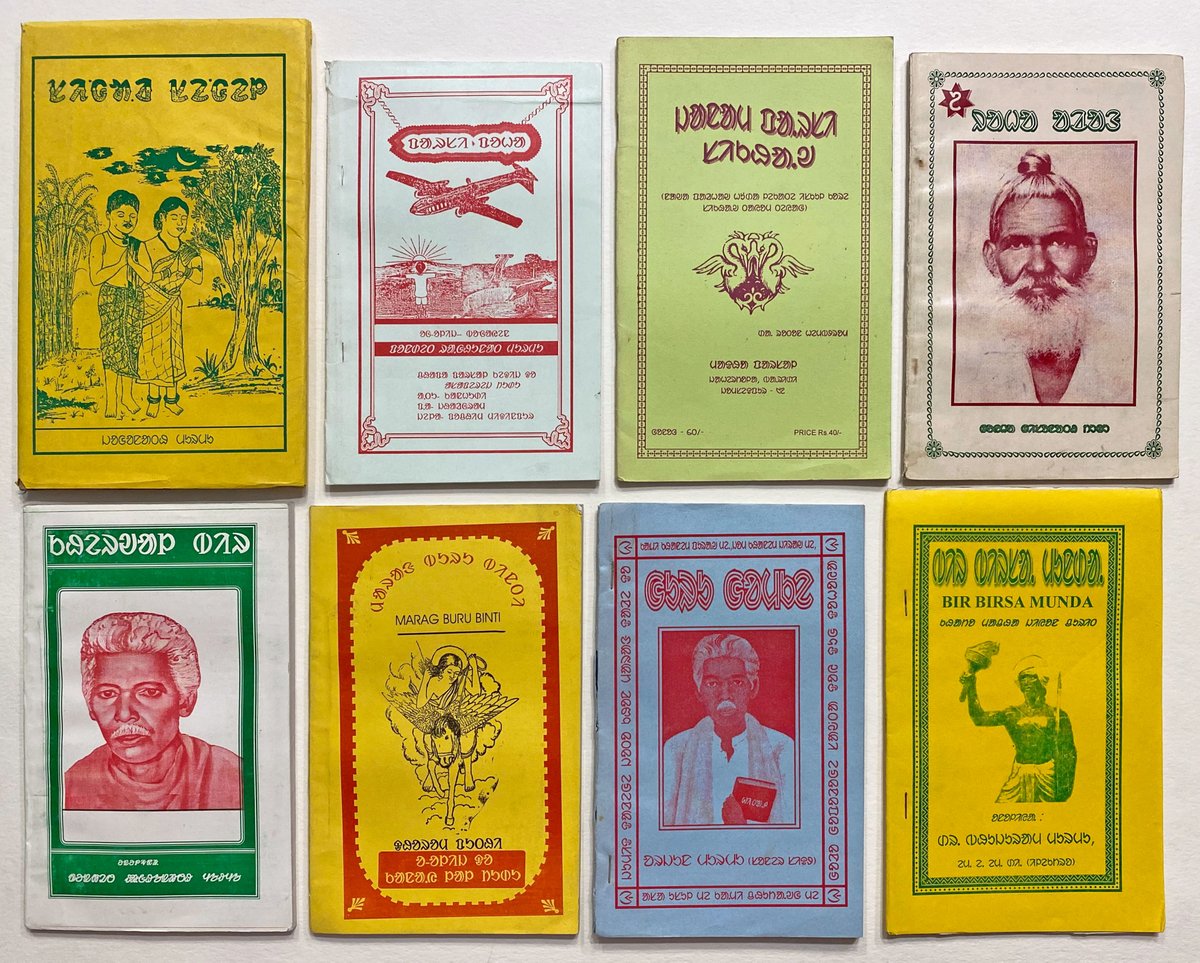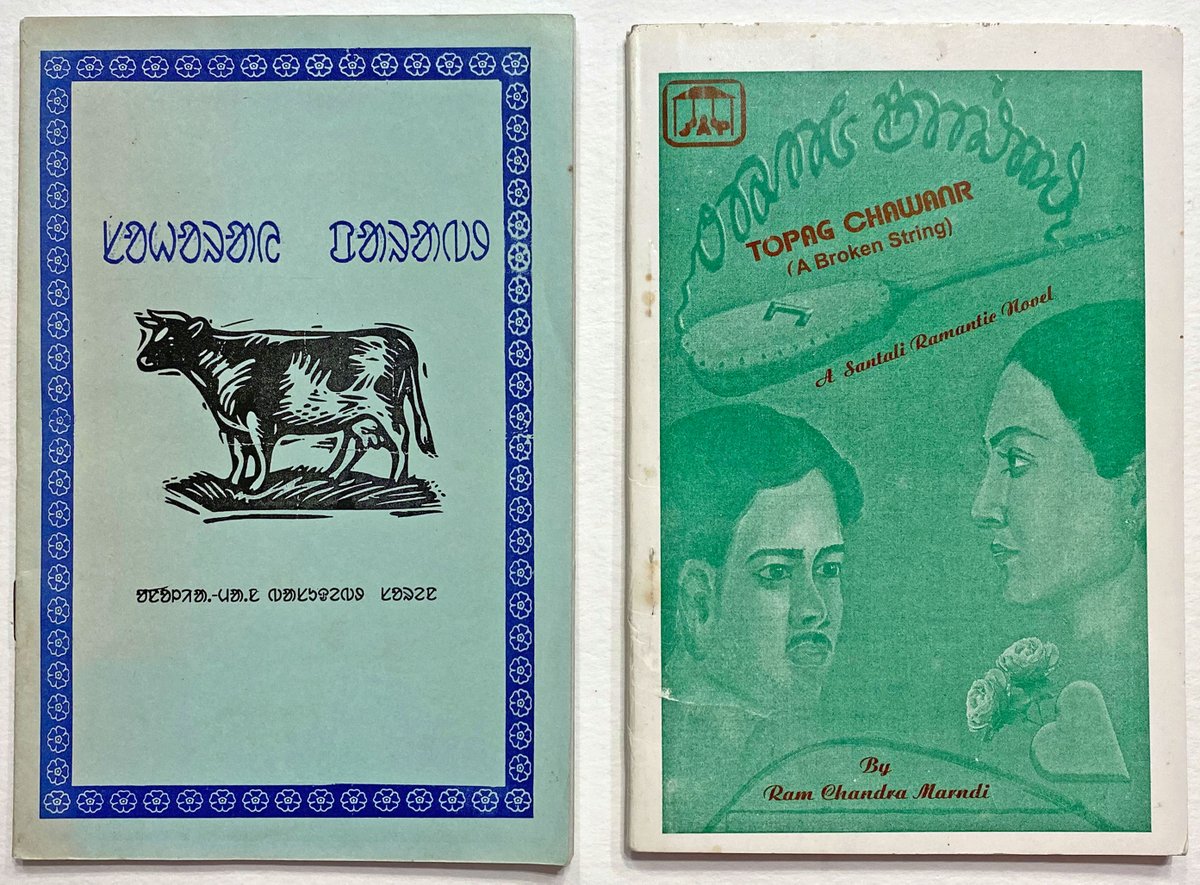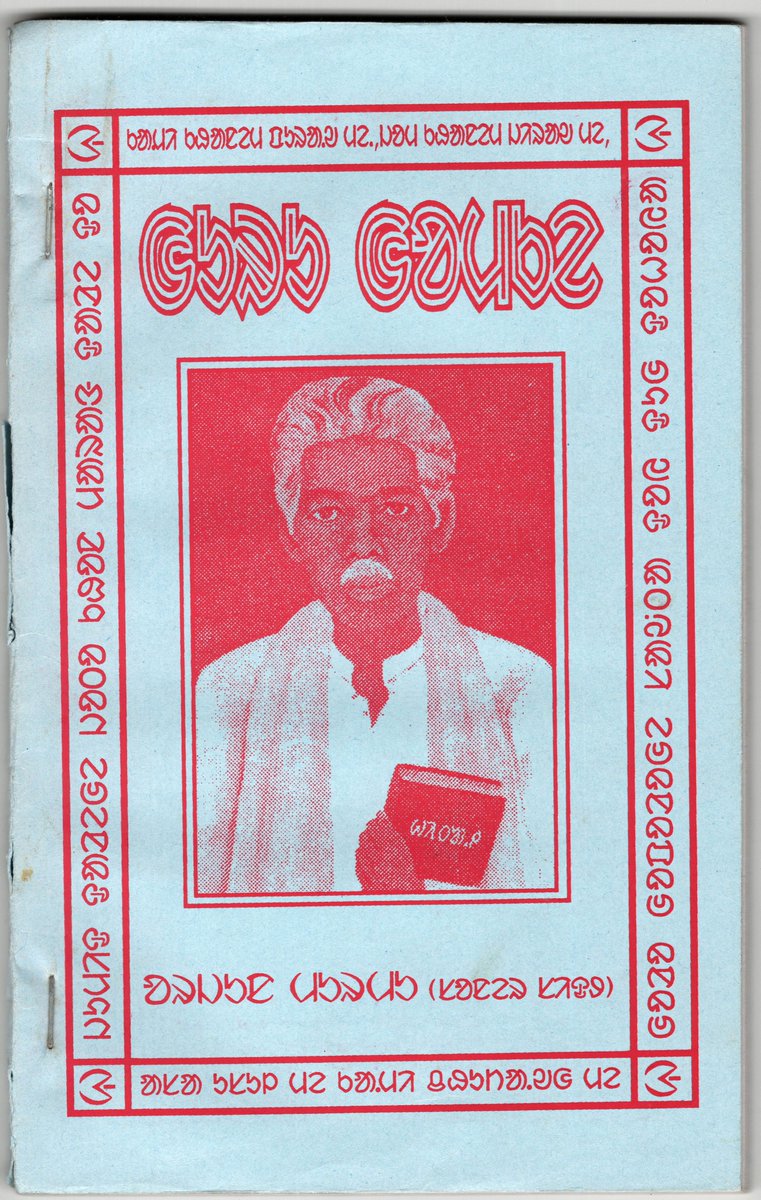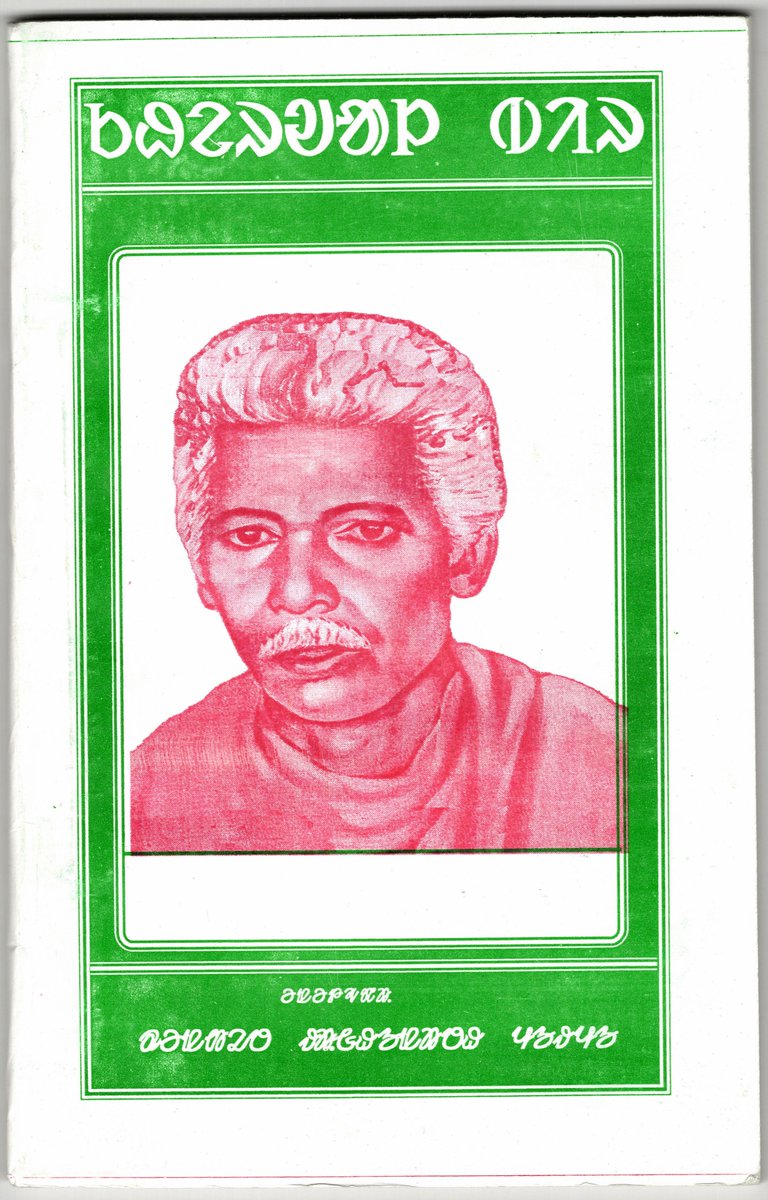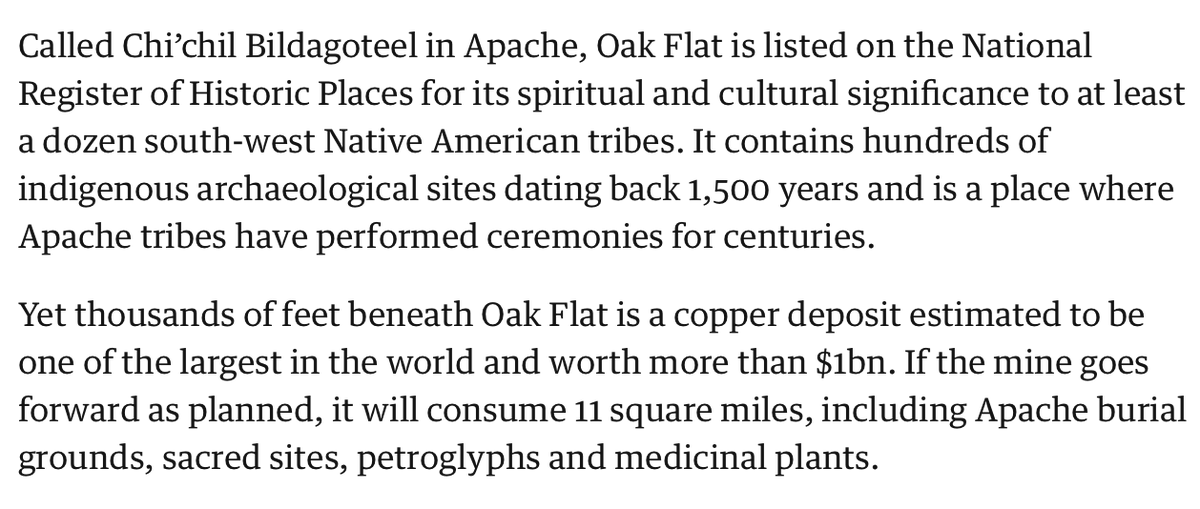
The extraordinary Cameroon polymath Ibrahim Njoya not only invented a unique indigenous script, but also gave rise to an independent uniquely African illuminated manuscript tradition. This is a portrait of King Mbouombouo, plate 33 from the original folio "Histoire des Bamoun". 

https://twitter.com/incunabula/status/1295975820691943424


This is the translation (into French) of the Shü-mom script above, by the Bamoun Manuscripts and Archives Project team at the Bamoun Royal Palace in Foumban, co-directed by Professor Konrad Tuchscherer and Oumarou Nchare (Director of Cultural Affairs at Palais Bamum). 



A 1932 Bamoun illuminated manuscript of the traditional tale "Le bouc et la panthere" (The Goat and the Panther), text again in Shü-mom script. This manuscript leaf was reproduced in the magazine Togo Cameroun of January 1932.
See: gallica.bnf.fr/ark:/12148/bpt…

See: gallica.bnf.fr/ark:/12148/bpt…


And here again is the translation (into French) of the Shü-mom script, by the Bamoun Manuscripts and Archives Project team at the Bamoun Royal Palace in Foumban. 


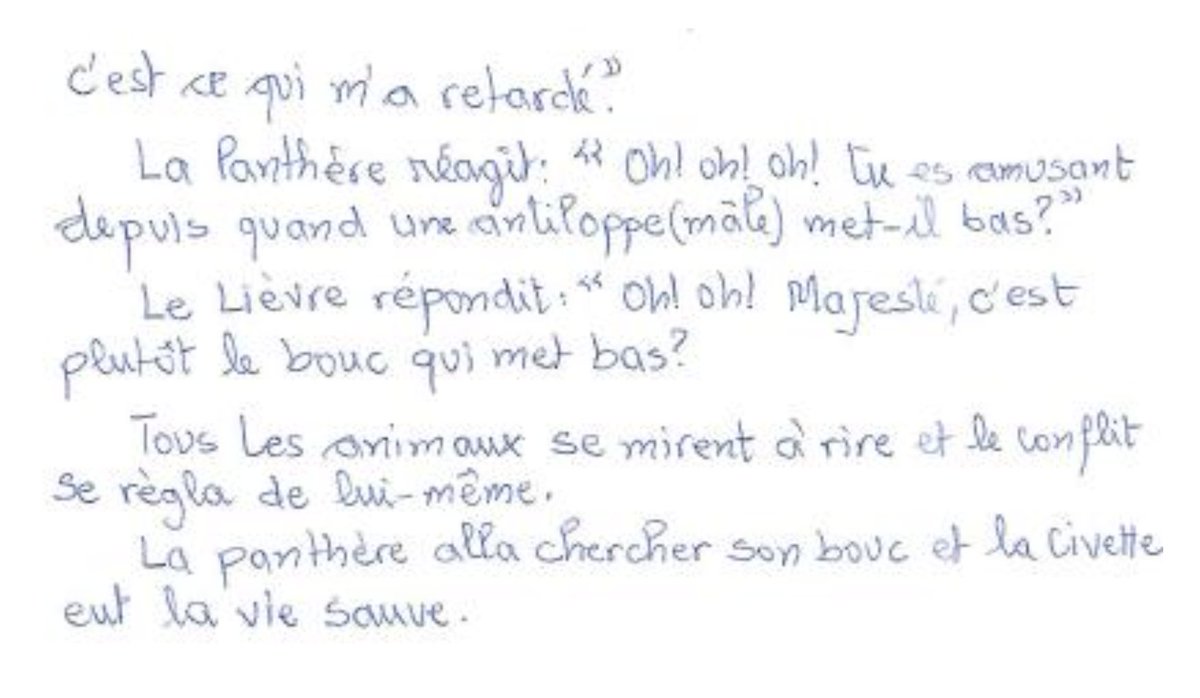
A large circa 1930 Bamoun manuscript with an ink, watercolor and pencil sketch of a battle scene entitled Guerre Bamum Banso, extensive text on the reverse in Shü-mom script that explains this battle. Collected in Cameroon in the 1930's by the French artist Suzanne Truittard. 1/3 

Some closeups showing more detail of the battle, and the shü-mon text. The flat perspective, teeming profusion of figures and bloodthirsty detail, is reminiscent of Persian manuscript painting, or of a Japanese emakimono battle scene. 2/3 







This is the translation of the shü-mom script into French by the Bamoun Manuscripts and Archives Project team at the Bamoun Royal Palace in Foumban. 3/3 

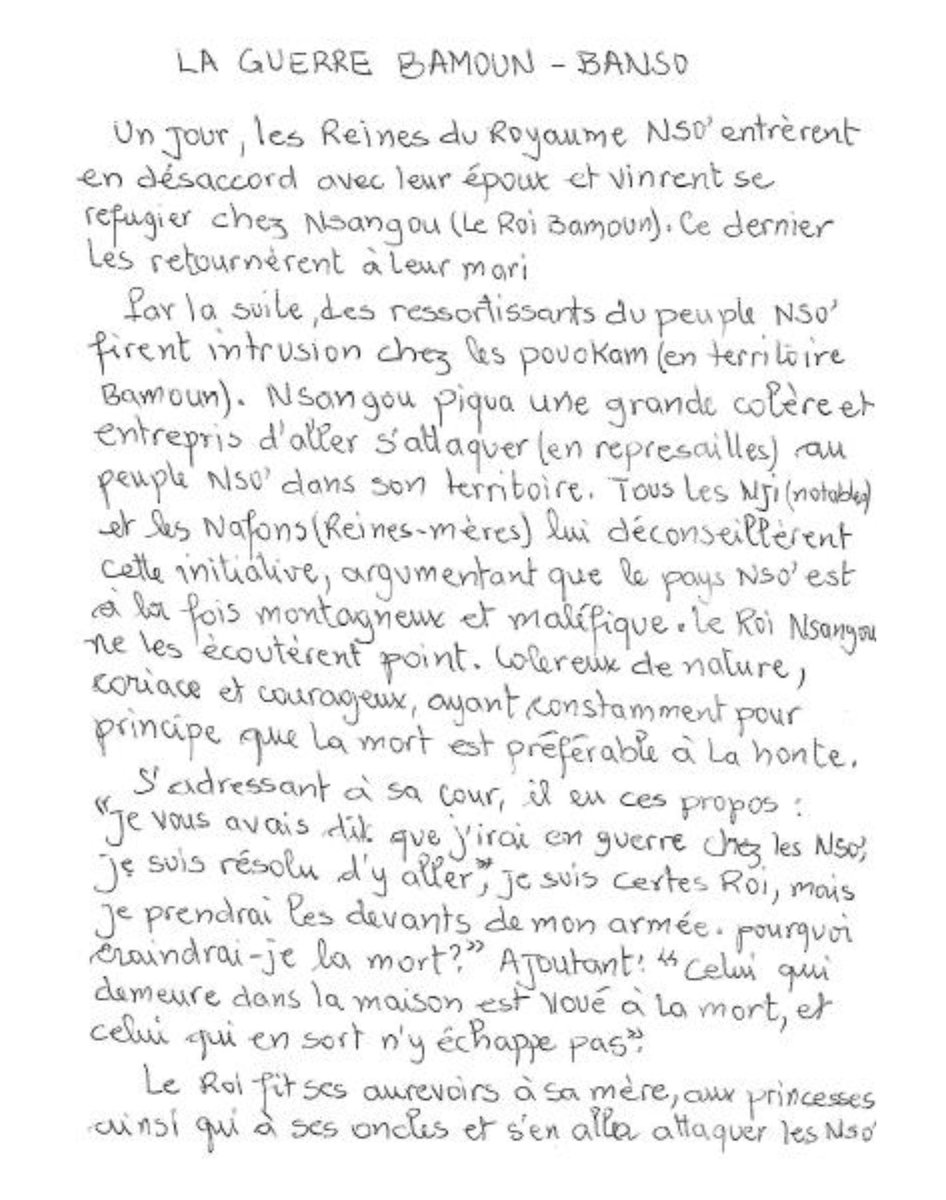

• • •
Missing some Tweet in this thread? You can try to
force a refresh




